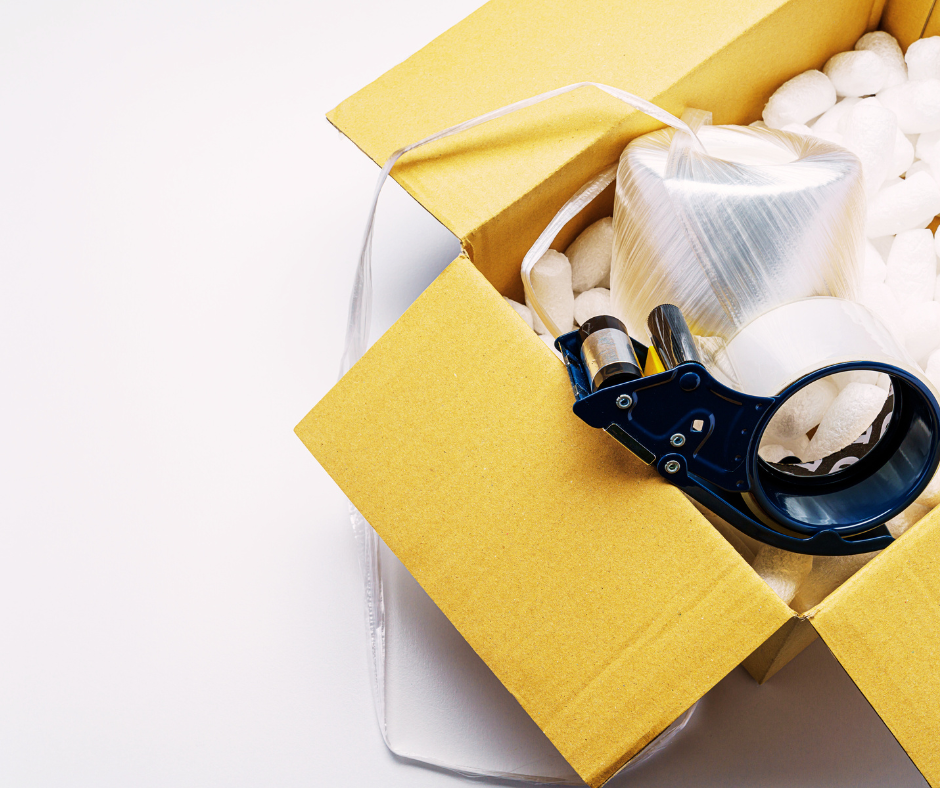Conquering the Cardboard Jungle: Picking the Perfect Packing Supplies
—
June 13th, 2024

When storing your belongings in a storage unit, the right packing supplies are not just a convenience but a necessity. Taking a few extra moments to select the proper boxes, covers, locks, and cushioning materials can ensure your items remain safe and well-organized throughout their time in storage. Even though storage facilities take precautions against leaks and pests, accidents can happen. Remember, if an item is worth storing, it’s worth protecting with the right packing supplies.
Choosing the Right Box:
When choosing your packing supplies, start with the foundation—boxes. Avoid flimsy, free boxes and opt for sturdy, corrugated boxes that can handle the weight of your belongings without collapsing. Pack heavy items like books in smaller boxes to prevent overloading, and use larger boxes for lightweight items like clothes or linens to maximize space. For an added layer of protection, consider plastic storage bins. They offer protection for moisture-sensitive items and can keep unwanted pests out. Clear bins also make it easy to see what’s inside, saving you time when you need to retrieve something specific.
Packing Supplies:
After selecting your boxes, gather additional packing supplies. Use packing materials like packing peanuts, bubble wrap, or foam wrap to cushion fragile items and prevent them from breaking during storage. Packing paper is another versatile option, useful for cushioning fragile items and filling empty spaces in boxes to prevent shifting and wrapping delicate items like furniture legs or artwork. Mattress and furniture covers are often overlooked but essential. They protect upholstered furniture and mattresses from dust, dirt, and moisture, helping to keep your furniture in top shape.
Moisture Absorbers:
Consider using moisture absorbers such as Damp Rid to reduce humidity in your storage unit, especially if you are storing items sensitive to moisture or using a non-climate-controlled unit. These absorbers can help keep your items mold and mildew-free.
Choosing the Right Lock:
Most facilities offer disc locks and regular padlocks for securing your unit. However, a disc lock provides fewer vulnerabilities for tampering. Its sturdy construction and unique keyway make it more resistant to picking and cutting, offering greater peace of mind for safeguarding your belongings.
Insurance Options:
Explore insurance options for your stored items to provide additional protection and peace of mind. Some storage facilities offer insurance plans, and homeowners' or renters' insurance policies may extend coverage to stored belongings. If the worst-case scenario happens, you will have the peace of mind of knowing your items are covered.
Additional Tips:
- Clearly label each box with its contents and the room it came from. This step is crucial for organizing your storage unit. A systematic labeling system, such as color-coding boxes based on rooms or categories, can make finding a stored item much easier.
- Place items you need to access frequently towards the front of the unit or on shelving units.
- Consider a climate-controlled storage unit for items sensitive to temperature or humidity fluctuations, such as wooden furniture or electronics. This can prevent damage from extreme environmental conditions. If you opt for a drive-up storage unit, use a moisture absorber to reduce humidity.
By following these tips and selecting the right packing supplies, you can ensure your belongings stay safe and sound in your storage unit. Remember, a little planning goes a long way in making your storage experience smooth and stress-free.
Stash It, Stack It, Store It: The Self Storage Chronicles
